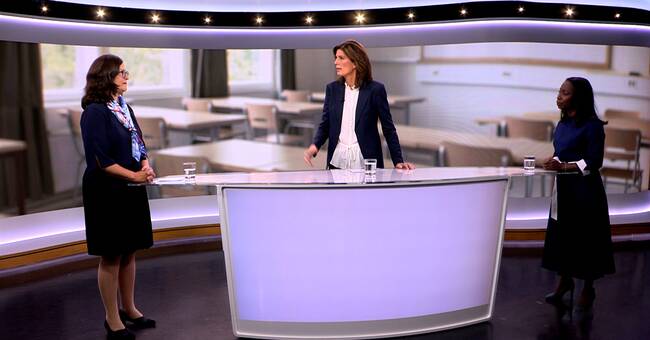The Swedish Schools Inspectorate has examined 28 compulsory schools where the proportion of pupils with approved grades is much lower than the national average.
It turns out that none of the schools during a ten-year period has succeeded in improving the results so that more students get approved.
Minister of Education Anna Ekström (S) points out that a number of investments have been made in the school in recent years, but also notes that more is obviously needed.
- Teaching must be given the priority it should have in school.
The teachers must be given time, energy and resources to carry out the teaching in a good way, says Ekström in Aktuellt on Monday evening.
Liberal party leader Nyamko Sabuni believes that the Swedish Schools Inspectorate's report once again shows that the communalisation of the school "was a big mistake".
- The school needs more resources.
Today it is a lottery which municipality we live in if there is money to give to the school, says Sabuni.
L: National school
The schools examined have several things in common.
For example, they have a higher proportion of students with a foreign background than other schools.
There is also a low proportion of students in the schools examined whose parents have a post-secondary education.
In addition, the schools have a high turnover of principals and often the support from the principals, especially municipalities, is both misdirected and deficient.
- Large turnover of teachers and leadership means that the children do not receive the education they are entitled to.
So we also need to ensure that the status of the teaching profession increases by nationalizing the school, says Sabuni.
S: A truth with modification
According to Ekström, the statement is a "truth with modification".
In fact, a nationalization would only apply to the municipal schools, but not to the independent ones, she says.
-This means that all the hundreds of millions that we pay out today and that go to the dividends in the independent schools will continue to do so.
I think that there should be increased state responsibility for funding and not least for the equivalence and quality of curricula and curricula.
Sabuni thinks that the Minister of Education is doing the Swedish school a disservice by "blaming failures at independent schools".
- Of these 28 schools, only two are independent schools.
They are only 15 percent of Swedish students in primary school who go to an independent school.
It can not be the percentage that makes the school fail, she says.

